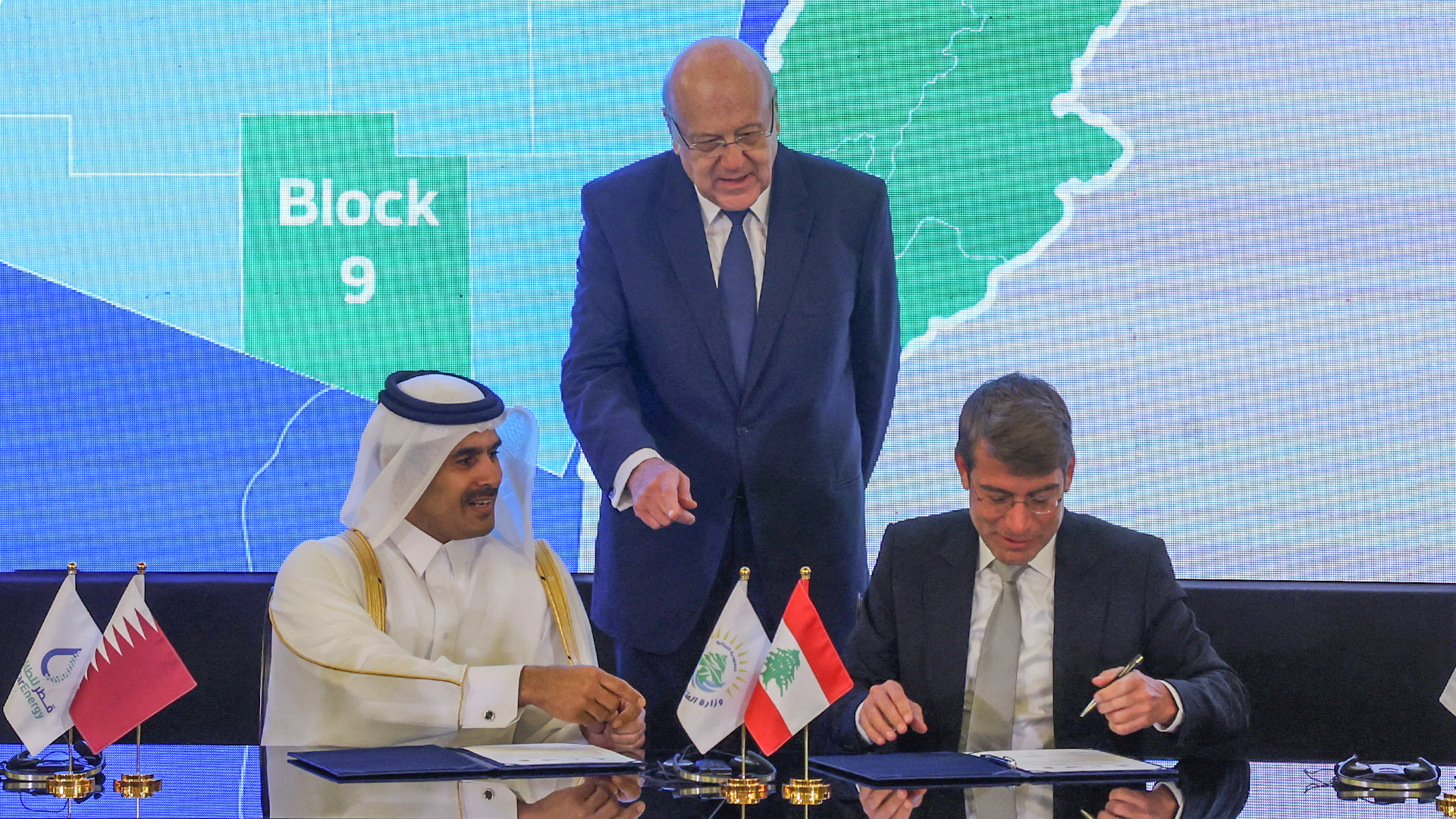Saad bin Sherida Al-Kaabi, Minister of State for Energy Affairs of Qatar, Managing Director and CEO of Qatar Energy, met today, Sunday, with the Minister of Energy and Water in the Lebanese caretaker government, Walid Fayyad.
During the meeting, they reviewed the bilateral relations between the two countries in the field of energy and the enhancement of cooperation between them, according to the Qatar News Agency (QNA).
Meanwhile, Al-Jazeera correspondent from Lebanon, Johnny Tanios, said that the two amending annexes to the two agreements signed between the consortium of companies and the Lebanese government were signed in order to carry out exploration and production operations in the offshore blocks No. 4 and No. 9 in the Lebanese economic zone.
The correspondent added that these two annexes will allow Qatar Energy to enter as a major partner in oil and gas exploration operations in Lebanon, along with the Italian companies Eni and the French Total Energies.
Under this agreement, Qatar Energy acquires 30% exploration rights in the two offshore areas off the Lebanese coast, while the remaining 35% is divided into Italian Eni and 35% into French Total.
Before the signing ceremony, a meeting was held between caretaker Prime Minister Najib Mikati and the CEOs of the three companies, in which Mikati confirmed that Qatar Energy's entry into the oil exploration file off the Lebanese coast is an important and exceptional event that reflects the depth of the partnership between Beirut and Doha, according to Al-Jazeera correspondent.
Mikati explained that this matter will open the way for other Gulf and Arab parties to invest in the oil and gas file in Lebanon.
Mikati stressed that the alliance of companies operating in regions "4" and "9" will contribute to advancing investments in the Lebanese energy sector.
According to Al-Jazeera correspondent, Qatar Energy's entry into the oil and gas exploration process in Lebanon came after the withdrawal of the Russian company "Novatek" last August due to the US sanctions imposed on it.
Lebanon relies heavily on exploration operations and their expected revenues in order to deal with its economic crisis in the first place and bridge the large financial gap in the state treasury, which is estimated at $70 billion.
Lebanese officials say that the exploration operations will take place during this year and are likely to end before the end of this year, and thus the picture becomes clearer, and Lebanon can then talk about numbers that may constitute a catalyst for attracting investments to it.

